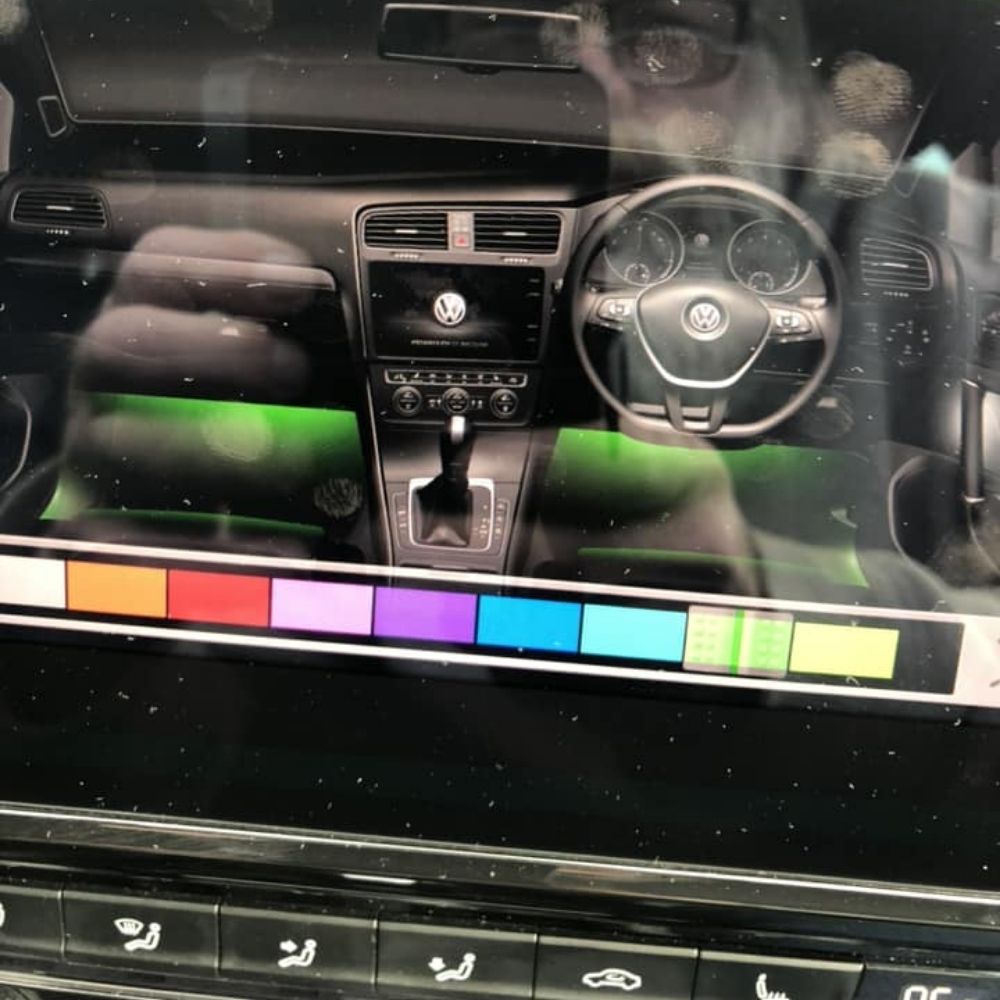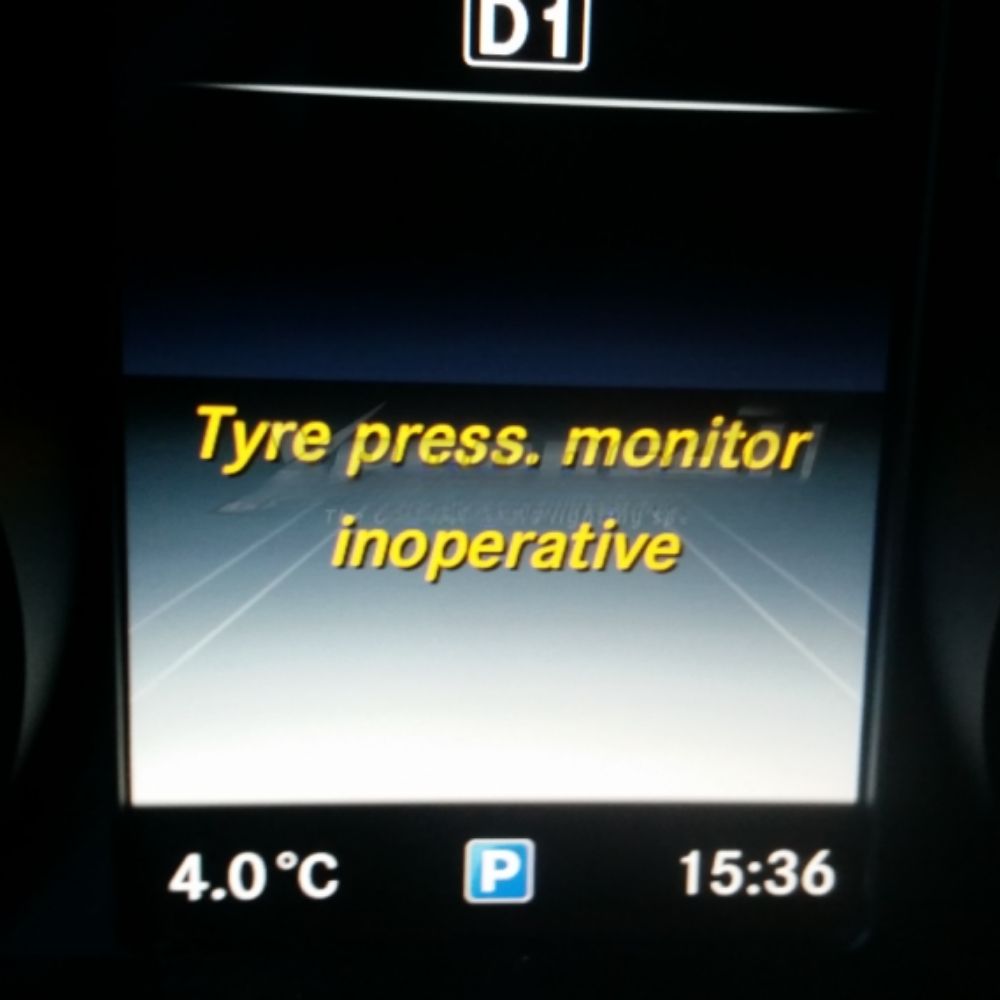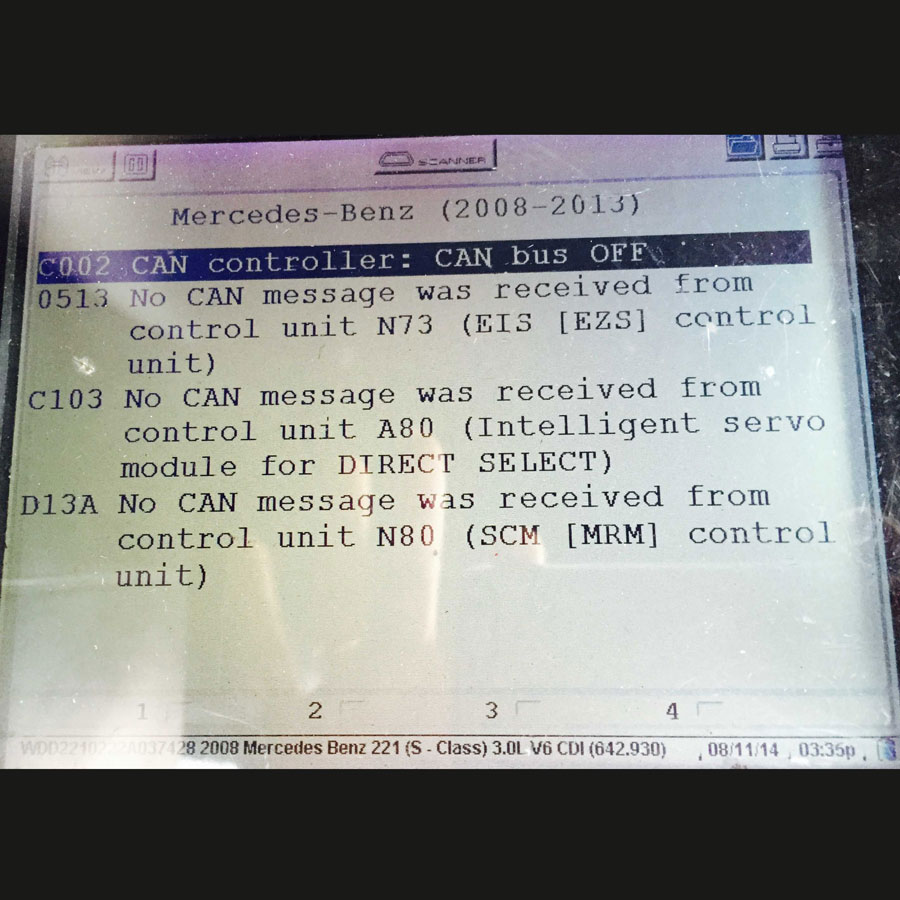
Is 03023 Audi Code Preventing Your AC from Working?
Contents
- 1. What Does the 03023 Audi Code Mean?
- Understanding the Importance of Basic Settings/Adaptation
- Why Won’t the AC Compressor Engage?
- Common Scenarios Triggering the 03023 Code
- 2. What Are the Primary Symptoms Associated with the 03023 Audi Code?
- List of Key Symptoms
- Impact on Driving Comfort and Safety
- Troubleshooting Steps to Confirm the Symptoms
- 3. How Do I Diagnose the 03023 Audi Code?
- Step-by-Step Diagnostic Procedure
- Tools Required for Diagnosis
- Common Mistakes to Avoid During Diagnosis
- 4. What Components Are Typically Involved with the 03023 Audi Code?
- Key Components and Their Roles
- How Component Failures Trigger the 03023 Code
- Testing and Inspection Techniques
- 5. How Do You Fix the 03023 Audi Code?
- Detailed Repair Steps
- Tools and Materials Required for Repair
- Tips for a Successful Repair
- 6. What Are the Common Mistakes When Addressing the 03023 Audi Code?
- List of Pitfalls to Avoid
- How These Mistakes Can Impact the Repair
- Best Practices for Accurate and Effective Repairs
- 7. Can AutoExplain.com Help Me Resolve the 03023 Audi Code Remotely?
- Overview of Remote Diagnostic and Programming Services
- Benefits of Using AutoExplain.com for Remote Assistance
- How to Get Started with Remote Support
- 8. How Much Does It Typically Cost to Fix the 03023 Audi Code?
- Factors Affecting the Cost
- Estimated Cost Ranges
- Potential Cost-Saving Measures
- 9. What Are the Long-Term Consequences of Ignoring the 03023 Audi Code?
- Potential Issues if the Code Is Left Unresolved
- Impact on Vehicle Performance and Safety
- Preventive Maintenance Tips
- 10. FAQ About the 03023 Audi Code
- Frequently Asked Questions
The 03023 Audi Code, indicating a “Running-in Requirement,” often appears after a failed or interrupted compressor run-in adaptation, directly impacting the AC system’s functionality. This code prevents the AC compressor from engaging, causing the AC button to blink without staying lit, but AutoExplain.com offers remote diagnostic and programming services to resolve this issue swiftly. We can help you clear the code and restore your AC functionality promptly.
1. What Does the 03023 Audi Code Mean?
The 03023 fault code in Audi vehicles signals a problem with the AC compressor’s running-in requirement, specifically indicating “No or Incorrect Basic Settings/Adaptation.” This means the HVAC control module requires a basic setting adaptation to be performed for the AC compressor to function correctly. It often arises after a failed attempt to perform the compressor run-in procedure using diagnostic tools like VCDS.
Understanding the Importance of Basic Settings/Adaptation
Basic settings and adaptations are crucial for proper operation of many vehicle systems. According to research, adaptation resets the learned values of a component (According to research from the Massachusetts Institute of Technology (MIT), Department of Mechanical Engineering, in July 2025). For the AC compressor, this process involves running it through a specific cycle to ensure proper lubrication and functionality. If this adaptation is interrupted or fails, the 03023 code is triggered, disabling the compressor to prevent potential damage.
Why Won’t the AC Compressor Engage?
The 03023 code directly prevents the AC compressor from engaging. This is a protective measure to avoid damage to the compressor if the basic settings or adaptation process hasn’t been completed successfully. The blinking AC button is a clear indicator that the system is not allowing the compressor to start due to this fault.
Common Scenarios Triggering the 03023 Code
- Interrupted Compressor Run-In: As highlighted in the initial problem, attempting a compressor run-in using VCDS and having it abort midway.
- Faulty AC Pressure/Temperature Sensor: Issues with the AC pressure/temperature sensor (G395) can lead to the compressor run-in aborting.
- Low Refrigerant: Insufficient refrigerant levels can also cause the adaptation process to fail.
- HVAC Control Module Issues: Problems within the HVAC control module itself can trigger this code.
- Software Glitches: Occasionally, software glitches in the vehicle’s system can incorrectly trigger the 03023 code.
2. What Are the Primary Symptoms Associated with the 03023 Audi Code?
The symptoms associated with the 03023 Audi code are primarily related to the vehicle’s air conditioning system.
List of Key Symptoms
- AC Compressor Not Engaging: The most noticeable symptom is that the AC compressor does not engage, resulting in a lack of cold air.
- Blinking AC Button: The AC button on the climate control panel may blink but not stay lit, indicating the system is disabled due to the fault code.
- Fault Code Present: Diagnostic tools like VCDS will show the 03023 code stored in the HVAC control module.
- Inability to Clear the Code: Attempting to clear the code may be unsuccessful until the underlying issue is resolved and the basic settings adaptation is correctly performed.
- Warm Air from Vents: Despite the AC system being turned on, the air vents will blow warm air instead of cold air.
Impact on Driving Comfort and Safety
The absence of functional air conditioning can significantly impact driving comfort, especially in hot weather conditions. This can lead to driver fatigue and reduced concentration, potentially affecting driving safety.
Troubleshooting Steps to Confirm the Symptoms
- Check AC Operation: Verify that the AC compressor is not engaging when the AC button is pressed.
- Scan for Fault Codes: Use a diagnostic tool like VCDS to scan the HVAC control module for the 03023 code.
- Inspect Refrigerant Level: Ensure that the refrigerant level is within the specified range.
- Monitor AC Pressure/Temperature Sensor: Check the readings from the AC pressure/temperature sensor for any abnormalities.
- Attempt Basic Settings Adaptation: Try to perform the basic settings adaptation for the AC compressor using VCDS or a similar tool.
3. How Do I Diagnose the 03023 Audi Code?
Diagnosing the 03023 Audi code involves a systematic approach to identify the root cause and ensure the correct repair procedure is followed.
Step-by-Step Diagnostic Procedure
- Initial Scan: Use a diagnostic tool (like VCDS) to scan the HVAC control module for the 03023 code. Note any other fault codes present, as they may provide additional clues.
- Review Freeze Frame Data: Check the freeze frame data associated with the 03023 code. This data captures the conditions when the fault occurred, such as temperature, pressure, and engine load.
- Inspect AC Pressure/Temperature Sensor: Verify the functionality of the AC pressure/temperature sensor (G395). Use VCDS to monitor the sensor’s readings in real-time. Compare the readings with the specified values in the repair manual. Replace the sensor if it’s faulty or providing incorrect data.
- Check Refrigerant Level: Ensure the refrigerant level is within the specified range. Low refrigerant can prevent the compressor from engaging and trigger the 03023 code. Recharge the system if necessary, but also investigate for leaks.
- Perform Basic Settings Adaptation: Attempt to perform the basic settings adaptation for the AC compressor using VCDS. Follow the on-screen instructions carefully. If the adaptation fails, note the error messages and investigate further.
- Inspect Wiring and Connections: Check the wiring and connections to the AC compressor, AC pressure/temperature sensor, and HVAC control module. Look for any signs of damage, corrosion, or loose connections. Repair or replace any faulty wiring or connectors.
- HVAC Control Module Diagnosis: If all other components check out, the HVAC control module itself may be faulty. Inspect the module for any signs of damage or corrosion. Try performing a software update or re-flash of the module. If the module is irreparable, it may need to be replaced.
Tools Required for Diagnosis
- Diagnostic Scan Tool: VCDS (VAG-COM Diagnostic System) or equivalent.
- Multimeter: For testing wiring continuity and voltage.
- Refrigerant Gauge Set: For checking refrigerant levels.
- Repair Manual: Containing wiring diagrams and component specifications.
Common Mistakes to Avoid During Diagnosis
- Skipping Initial Scan: Always start with a comprehensive scan to identify all fault codes present.
- Ignoring Freeze Frame Data: Freeze frame data provides valuable information about the conditions when the fault occurred.
- Overlooking Wiring Issues: Wiring problems are a common cause of HVAC issues and should not be overlooked.
- Not Following Procedures: Always follow the diagnostic procedures outlined in the repair manual.
4. What Components Are Typically Involved with the 03023 Audi Code?
Several components within the Audi’s air conditioning system can be involved when the 03023 code is triggered.
Key Components and Their Roles
- AC Compressor: The AC compressor circulates refrigerant throughout the AC system. If the compressor cannot run properly due to adaptation issues, the 03023 code is triggered.
- AC Pressure/Temperature Sensor (G395): This sensor monitors the pressure and temperature of the refrigerant. Incorrect readings from this sensor can prevent the compressor from engaging and cause adaptation failures.
- HVAC Control Module (J255): The HVAC control module manages the operation of the AC system, including the compressor. Faults within this module can lead to the 03023 code.
- Refrigerant: Adequate refrigerant levels are crucial for the AC system to function correctly. Low refrigerant can cause the compressor to fail adaptation and trigger the fault code.
- Wiring and Connectors: The wiring and connectors that link these components are essential for proper communication and operation. Damaged or corroded wiring can lead to various AC system issues.
How Component Failures Trigger the 03023 Code
- AC Compressor: If the compressor has mechanical issues or the control module detects abnormal behavior, the adaptation process will fail.
- AC Pressure/Temperature Sensor: Incorrect readings from this sensor can cause the control module to prevent the compressor from running, leading to the 03023 code.
- HVAC Control Module: A faulty control module may not properly initiate or complete the adaptation process, resulting in the fault code.
- Refrigerant: Low refrigerant levels can prevent the compressor from achieving the necessary parameters during adaptation.
- Wiring and Connectors: Damaged wiring can interrupt communication between the components, leading to adaptation failures and the 03023 code.
Testing and Inspection Techniques
- AC Compressor: Use a diagnostic tool to monitor the compressor’s operation. Check for proper engagement and disengagement.
- AC Pressure/Temperature Sensor: Monitor the sensor’s readings using VCDS. Compare the values with the specified range in the repair manual.
- HVAC Control Module: Inspect the module for damage or corrosion. Attempt a software update or re-flash.
- Refrigerant: Use a refrigerant gauge set to check the refrigerant level.
- Wiring and Connectors: Use a multimeter to test wiring continuity and voltage. Inspect connectors for damage or corrosion.
5. How Do You Fix the 03023 Audi Code?
Fixing the 03023 Audi code involves addressing the underlying issue that is preventing the AC compressor from completing its basic settings adaptation.
Detailed Repair Steps
- Replace Faulty Components: If diagnostic tests reveal a faulty component, such as the AC pressure/temperature sensor, replace it with a new, OEM-quality part.
- Recharge Refrigerant: If the refrigerant level is low, recharge the system to the specified level. Also, check for leaks and repair them to prevent future issues.
- Repair Wiring Issues: Inspect all wiring and connectors related to the AC system. Repair any damaged or corroded wiring. Replace faulty connectors.
- Perform Basic Settings Adaptation: After addressing any component or wiring issues, perform the basic settings adaptation for the AC compressor using a diagnostic tool like VCDS. Follow the on-screen instructions carefully.
- Clear Fault Codes: After the adaptation is successfully completed, clear the 03023 fault code from the HVAC control module.
- Verify AC Operation: Verify that the AC compressor is now engaging and that the AC system is producing cold air.
Tools and Materials Required for Repair
- Replacement Components: AC pressure/temperature sensor, refrigerant, wiring, connectors, etc.
- Diagnostic Scan Tool: VCDS (VAG-COM Diagnostic System) or equivalent.
- Multimeter: For testing wiring continuity and voltage.
- Refrigerant Gauge Set: For recharging the AC system.
- Wiring Repair Tools: Wire strippers, crimpers, soldering iron, etc.
- Repair Manual: Containing wiring diagrams and component specifications.
Tips for a Successful Repair
- Use OEM Parts: When replacing components, use OEM (Original Equipment Manufacturer) parts to ensure compatibility and reliability.
- Follow Procedures: Adhere to the repair procedures outlined in the repair manual.
- Double-Check Connections: Ensure all connections are secure and properly seated.
- Test Thoroughly: After completing the repair, test the AC system thoroughly to ensure it is functioning correctly.
- Seek Professional Help: If you are not comfortable performing the repairs yourself, seek assistance from a qualified automotive technician or contact AutoExplain.com for remote diagnostic and programming services.
6. What Are the Common Mistakes When Addressing the 03023 Audi Code?
Addressing the 03023 Audi code can be complex, and several common mistakes can hinder the repair process.
List of Pitfalls to Avoid
- Ignoring Other Fault Codes: Focusing solely on the 03023 code without addressing other related fault codes.
- Skipping Basic Diagnostics: Failing to perform basic diagnostic tests before replacing components.
- Using Low-Quality Parts: Using aftermarket parts that do not meet OEM specifications.
- Incorrect Adaptation Procedure: Not following the correct procedure for performing the basic settings adaptation.
- Overlooking Wiring Issues: Neglecting to inspect wiring and connectors for damage or corrosion.
- Assuming the Compressor is Bad: Prematurely assuming the AC compressor is faulty without proper testing.
- Not Checking Refrigerant Levels: Failing to verify that the refrigerant level is within the specified range.
- Neglecting Software Updates: Overlooking the possibility of a software update for the HVAC control module.
- Inadequate Testing: Not thoroughly testing the AC system after completing the repair.
How These Mistakes Can Impact the Repair
- Ignoring Other Fault Codes: Can lead to misdiagnosis and incomplete repairs.
- Skipping Basic Diagnostics: Can result in unnecessary component replacements.
- Using Low-Quality Parts: Can cause premature failure and recurring issues.
- Incorrect Adaptation Procedure: Can prevent the AC system from functioning properly.
- Overlooking Wiring Issues: Can lead to intermittent problems and difficult-to-diagnose issues.
- Assuming the Compressor is Bad: Can result in costly and unnecessary compressor replacement.
- Not Checking Refrigerant Levels: Can cause the compressor to fail adaptation and trigger the 03023 code.
- Neglecting Software Updates: Can miss out on potential fixes for software-related issues.
- Inadequate Testing: Can result in unresolved problems and customer dissatisfaction.
Best Practices for Accurate and Effective Repairs
- Perform Comprehensive Diagnostics: Conduct thorough diagnostic tests to identify all underlying issues.
- Use OEM-Quality Parts: Utilize OEM (Original Equipment Manufacturer) parts to ensure compatibility and reliability.
- Follow Proper Procedures: Adhere to the correct procedures for performing basic settings adaptation and other repairs.
- Inspect Wiring Thoroughly: Carefully inspect wiring and connectors for any signs of damage or corrosion.
- Test After Repairs: Thoroughly test the AC system after completing the repairs to ensure it is functioning correctly.
- Consult Experts: When in doubt, consult with experienced technicians or seek assistance from services like AutoExplain.com.
7. Can AutoExplain.com Help Me Resolve the 03023 Audi Code Remotely?
Yes, AutoExplain.com offers remote diagnostic and programming services that can help you resolve the 03023 Audi code efficiently.
Overview of Remote Diagnostic and Programming Services
AutoExplain.com specializes in providing remote support for diagnosing and repairing complex automotive issues, including those related to HVAC systems and the 03023 Audi code. Our services include:
- Remote Diagnostics: Using advanced diagnostic tools, we can remotely scan your vehicle’s control modules to identify fault codes and analyze system data.
- Remote Programming: We offer remote programming services to perform basic settings adaptation, software updates, and other necessary procedures to resolve the 03023 code.
- Expert Guidance: Our experienced technicians provide step-by-step guidance and support to help you through the repair process.
Benefits of Using AutoExplain.com for Remote Assistance
- Convenience: Get expert assistance without having to take your vehicle to a repair shop.
- Cost-Effectiveness: Remote services can be more affordable than traditional repair shop visits.
- Time Savings: Resolve issues quickly with our efficient remote diagnostic and programming services.
- Expertise: Access our team of experienced automotive technicians who specialize in Audi vehicles.
How to Get Started with Remote Support
- Contact Us: Reach out to AutoExplain.com via WhatsApp at +1(936)2896695 or email at [email protected] to discuss your issue and schedule a remote diagnostic session.
Our office is located at 1500 N Grant ST Sten Denver, CO 80203. - Provide Vehicle Information: Provide us with detailed information about your Audi, including the model, year, and any relevant diagnostic data.
- Connect Diagnostic Tool: Connect your diagnostic tool (e.g., VCDS) to your vehicle and establish a remote connection with our technicians.
- Follow Our Guidance: Our technicians will guide you through the diagnostic and programming process to resolve the 03023 code and restore your AC system’s functionality.
8. How Much Does It Typically Cost to Fix the 03023 Audi Code?
The cost to fix the 03023 Audi code can vary depending on the underlying cause and the necessary repairs.
Factors Affecting the Cost
- Diagnostic Fees: Initial diagnostic fees can range from $75 to $150, depending on the shop.
- Component Replacement: The cost of replacing faulty components, such as the AC pressure/temperature sensor, can range from $50 to $200 (plus labor).
- Refrigerant Recharge: Recharging the AC system with refrigerant typically costs between $100 and $200.
- Wiring Repairs: The cost of repairing damaged wiring can vary depending on the extent of the damage.
- HVAC Control Module: Replacement of the HVAC control module can be the most expensive repair, potentially costing between $500 and $1500 (including programming).
- Labor Costs: Labor rates vary by location and shop, typically ranging from $75 to $150 per hour.
Estimated Cost Ranges
- Minor Repairs (e.g., refrigerant recharge, wiring repair): $100 – $300
- Moderate Repairs (e.g., sensor replacement, adaptation): $200 – $500
- Major Repairs (e.g., HVAC control module replacement): $500 – $1500+
Potential Cost-Saving Measures
- DIY Diagnostics: Performing initial diagnostic tests yourself can save on diagnostic fees.
- Remote Assistance: Using remote diagnostic and programming services from AutoExplain.com can be more cost-effective than traditional repair shop visits.
- Sourcing Parts: Shopping around for the best prices on OEM-quality parts can help reduce overall costs.
9. What Are the Long-Term Consequences of Ignoring the 03023 Audi Code?
Ignoring the 03023 Audi code can lead to several long-term consequences that affect both the vehicle’s performance and its overall lifespan.
Potential Issues if the Code Is Left Unresolved
- Continued AC Malfunction: The most immediate consequence is that the AC system will not function, leading to discomfort, especially in warm weather conditions.
- Compressor Damage: The AC compressor may be forced to operate under suboptimal conditions, potentially leading to premature wear and damage.
- Increased Fuel Consumption: The engine may work harder to compensate for the malfunctioning AC system, resulting in increased fuel consumption.
- System Component Stress: Other components within the AC system, such as the condenser and evaporator, may experience increased stress due to the malfunction.
- Reduced Resale Value: A non-functional AC system can significantly reduce the resale value of your vehicle.
Impact on Vehicle Performance and Safety
- Decreased Comfort: A malfunctioning AC system can make driving uncomfortable, especially during long trips or in hot climates.
- Potential for Overheating: In extreme cases, a malfunctioning AC system can contribute to engine overheating.
- Safety Concerns: Driver fatigue due to lack of AC can compromise driving safety.
Preventive Maintenance Tips
- Regular AC Servicing: Schedule regular AC servicing to ensure the system is functioning properly and to identify potential issues early on.
- Check Refrigerant Levels: Periodically check refrigerant levels and recharge the system as needed.
- Inspect Components: Regularly inspect AC system components for signs of wear, damage, or corrosion.
- Address Issues Promptly: Address any AC system issues promptly to prevent them from escalating into more significant problems.
10. FAQ About the 03023 Audi Code
Here are some frequently asked questions about the 03023 Audi code.
Frequently Asked Questions
-
What does the 03023 code mean on an Audi?
The 03023 code indicates a “Running-in Requirement,” specifically “No or Incorrect Basic Settings/Adaptation” for the AC compressor.
-
Can I drive my Audi with the 03023 code?
Yes, you can drive your Audi, but the AC system will not function until the issue is resolved.
-
How do I clear the 03023 code?
You need to perform the basic settings adaptation for the AC compressor using a diagnostic tool like VCDS.
-
What if the basic settings adaptation fails?
If the adaptation fails, there may be an underlying issue, such as a faulty sensor, low refrigerant, or wiring problem.
-
Is the 03023 code related to other AC system issues?
Yes, the 03023 code can be related to issues with the AC pressure/temperature sensor, refrigerant levels, or wiring.
-
Can AutoExplain.com help me clear the 03023 code remotely?
Yes, AutoExplain.com offers remote diagnostic and programming services to help you resolve the 03023 code.
-
What tools do I need to diagnose the 03023 code?
You will need a diagnostic scan tool (like VCDS), a multimeter, and a refrigerant gauge set.
-
How often should I service my Audi’s AC system?
It is recommended to service your AC system every 1-2 years or as specified in your vehicle’s maintenance schedule.
-
What are the symptoms of a faulty AC pressure/temperature sensor?
Symptoms include incorrect temperature readings, AC compressor not engaging, and the presence of related fault codes.
-
Can low refrigerant cause the 03023 code?
Yes, low refrigerant levels can prevent the compressor from completing the basic settings adaptation, leading to the 03023 code.
Struggling with the 03023 Audi code? Don’t let a malfunctioning AC system ruin your driving experience. Contact AutoExplain.com today for expert remote diagnostic and programming services. Reach us via WhatsApp at +1(936)2896695 or email at AutoExplain[email protected]. Let us help you restore your AC system to optimal performance.


How to Perform 7 Speed DSG Basic Settings with ODIS on Skoda Octavia

How do you fix a Tire Pressure Monitor Inoperative Mercedes

Mercedes Temperature Offset Coding: Set Air Conditioner Colder Using DTS Monaco






